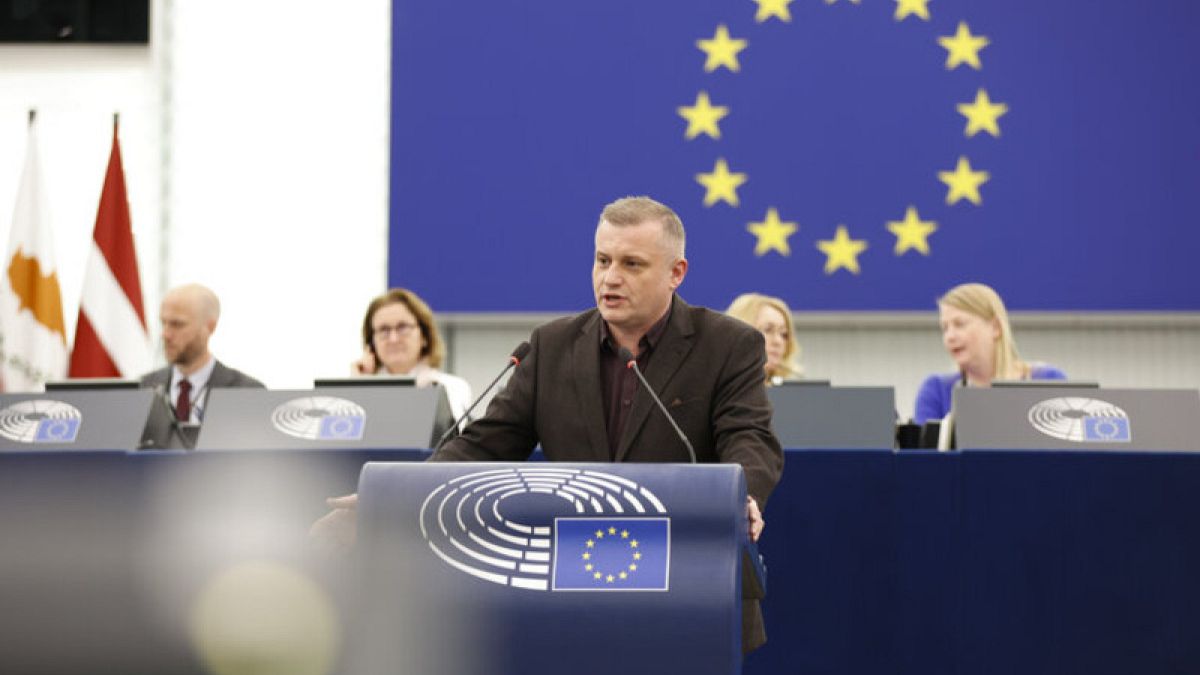The three Polish members of the Europe of Sovereign Nations (ESN) group in the European Parliament are currently at odds over attitudes to Russia with other members of the group, according to several sources familiar with the matter.
Poles Marcin Sypniewski, Stanisław Tyszka, and Ewa Zajączkowska-Hernik, elected on the “Confederation” list, are reportedly unhappy with their fellow MEPs’ general stance on Russia and the behaviour of some individuals in the group, according to the sources.
Attendance of Bulgarian party Revival’s delegates – including MEP Stanislav Stoyanov – at the Victory Day parade in Moscow on 9 May, was an aggravating factor according to the sources.
Revival recently signed a cooperation agreement with Vladimir Putin’s United Russia party, and the Renew Europe group in the Parliament has calledfor an investigation into whether Revival’s MEPs have received financial contributions from United Russia.
However, this is not the only source of discontent for the Polish MEPs. Some are also uneasy about the alliance with the German far-right party Alternative for Germany (AfD).
AfD members are already seen as being sympathetic to Russian interests, and MEP Peter Bystron is under investigation for allegedly accepting bribes to support those interests.
In Poland, Confederation MEPs are being criticised for belonging to the same group as the nationalist German party, an especially sensitive issue given the strong anti-German sentiment among right-wing Polish voters.
“Tensions exist,” said an internal source within the group, “but they are unlikely to result in a split in the short term.”
The three Polish MEPs are aware that if they leave the ESN, they risk becoming non-attached members in the European Parliament.
“They could easily join the Patriots for Europe (PfE) group,” said another internal source, noting that the group already includes Anna Bryłka and Tomasz Buczek, who were also elected on the Confederation ticket.
Officially, the PfE group won’t comment on whether talks are ongoing, but internal sources told Euronews that the Polish members would likely be more readily accepted than larger delegations, such as the German AfD.
It is highly likely that the MEPs in question will not leave the ESN group unless they receive firm assurances that they will be accepted into the PfE, according to one of the sources.
MEPs lose certain powers when they are unaffiliated, including reduced speaking time during plenary sessions and less funding for staff, as some aides are employed by the group rather than individual MEPs.
The situation is even more delicate for Stanisław Tyszka, one of the three, who serves as co-chairman of the ESN group and is reportedly reluctant to give up the position.
Nevertheless, this “marriage of convenience” is also advantageous for the other parties: without the Polish delegation, the ESN group risks falling below the basic threshold required for any group.
Each political group in the European Parliament must include at least 23 MEPs from at least seven Member States. The ESN currently has 27 members from eight countries, but Lithuanian lawmaker Petras Gražulis is also reportedly in conflict with other members of the group.
The Confederation’s MEPs must now decide whether to swallow the views on Russia of their colleagues and take the advantages of group membership.
All three Polish MEPs were not immediately available for comment.
Read the full article here


